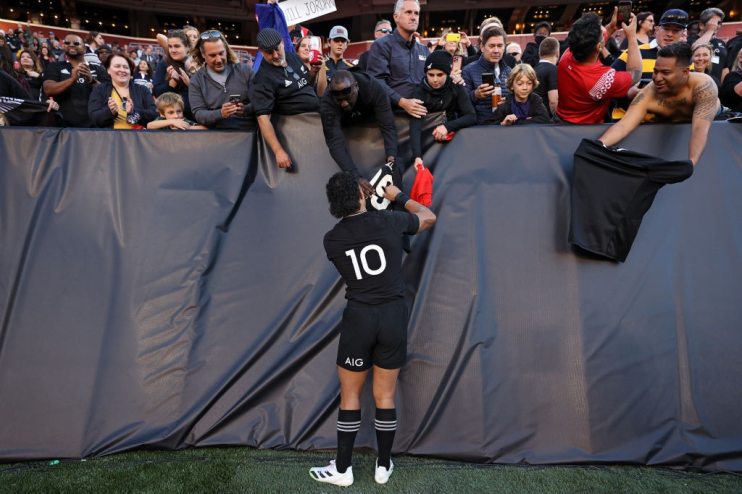The November international window helps and hinders rugby

November to northern hemisphere rugby fans is equivalent to being a child in the world’s biggest toy shop.
The domestic leagues are in full flow and the prospect of continental club rugby is on the horizon, but to top it off the best of the world’s international sides come to Europe for autumn tours.
Windows exist in globally agreed periods where international rugby games take place. In spring, European sides tend to tour, while Europe generally hosts at this time of year.
Any Test match that takes place outside of the agreed windows therefore faces player restrictions and potentially weakened sides.
The reasons as to why these anomalous matches take place are usually two-fold, a need to boost the coffers, and exposure, but there are also consequences.
Cash is king
It’s no secret that Covid-19 has had a monumental impact on rugby, as it has with most other sports.
Empty terraces, no concession sales and a restriction on marketing and sponsorship opportunities have left governing bodies needing money.
Rugby’s financial model has seemingly never been sustainable, and these matches allow the countries involved to repair some of the damage.
Take the All Blacks. At home, New Zealand rugby chiefs are in a battle with their players’ union over private equity firm Silver Lake’s attempted equity purchase of a stake in one of sport’s most famous sporting brands.
The All Blacks last week played the USA in Washington and this weekend play Wales, both outside of the international window.
Their prize for featuring in these matches is in the millions, and it’s crucial to the funding of their union.
Last month the chief executive of the Welsh Rugby Union said that their match would bring in £3m-£4m. The All Blacks, too, will benefit.
Tonga and Scotland meet this weekend in Edinburgh outside of the international window, meaning many of their regular players cannot feature.
Both sides will get some form of financial benefit from the game, though the profits of Pacific Island nations rarely match those of their European opponents.
November networking
Last weekend, the USA’s match with the All Blacks finished 104-14; an absolute dismantling of an American side who recently lost to Uruguay in World Cup qualifiers.
Even with their first choice XV, you’d be brave to bet against anything but a Kiwi domination.
But that’s not the point. The US has ambitions to host the men’s Rugby World Cup in either 2027 or 2031, and having 40,000 fans watching rugby is a big step.
Big games aren’t new to North America. Ireland and the All Blacks played in Chicago in 2016, but the US needs to prove their Eagles team can attract a crowd.
For them, this window is a lifeline to justifying their ambitions.
It’s never a win-win
The counter argument to the finances and exposure gained is the strength of teams they are able to put out.
While this doesn’t impact the All Blacks, who are currently in their club off-season, both Wales and the US have had to pick drastically under-strength squads to play the former world No1 side.
The US were unable to pick European-based players in their defeat to New Zealand. Likewise, the Welsh side who’ll feature against the All Blacks will be without their English Premiership-based players.
That means no Dan Biggar, Louis Rees-Zammit and Callum Sheedy, all to the detriment of their winning chances on Saturday.
Rugby is in a funding crisis, from national level to grassroots. But in these November Test matches, unions must balance the raw need for financial income with the risk of devaluing the game fans are paying to watch. It’s an unenviable job.